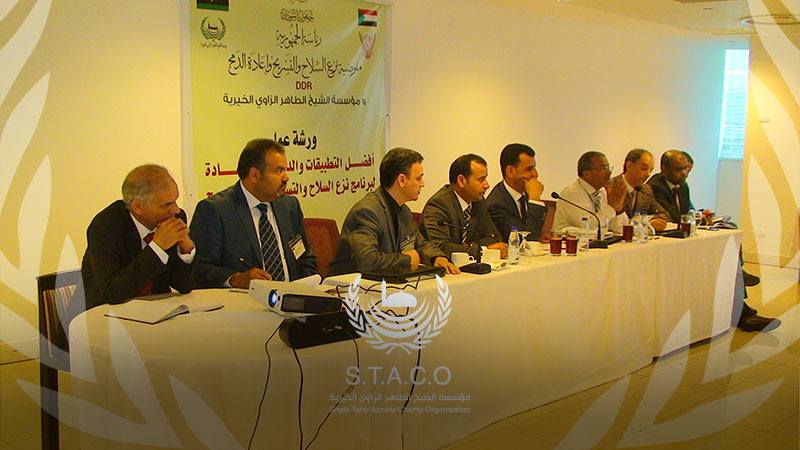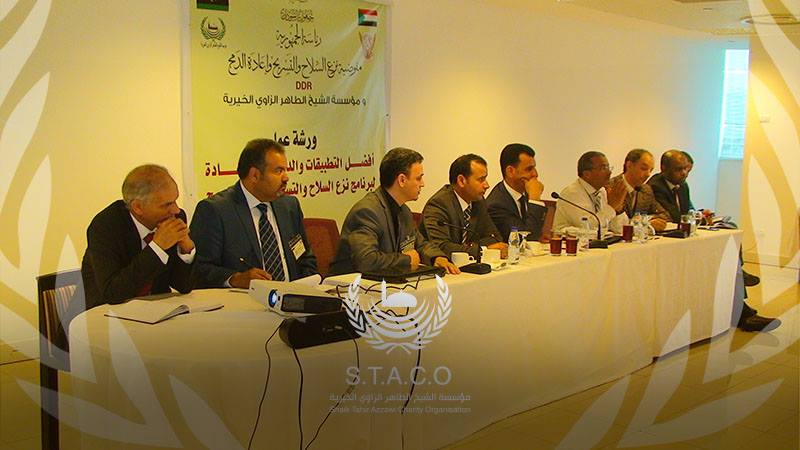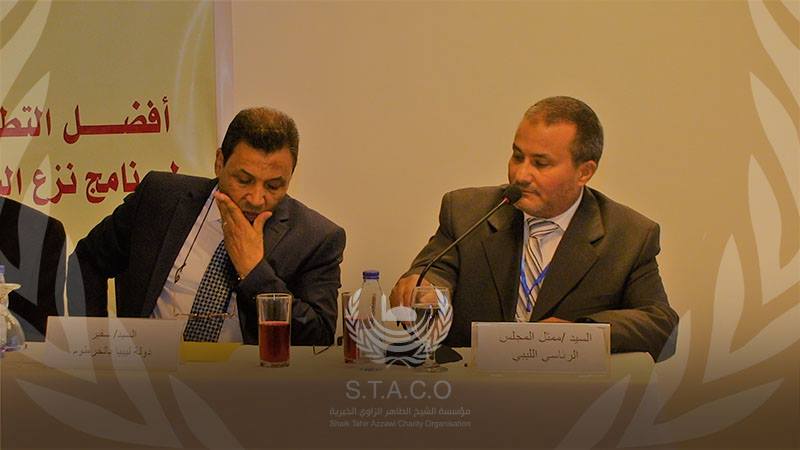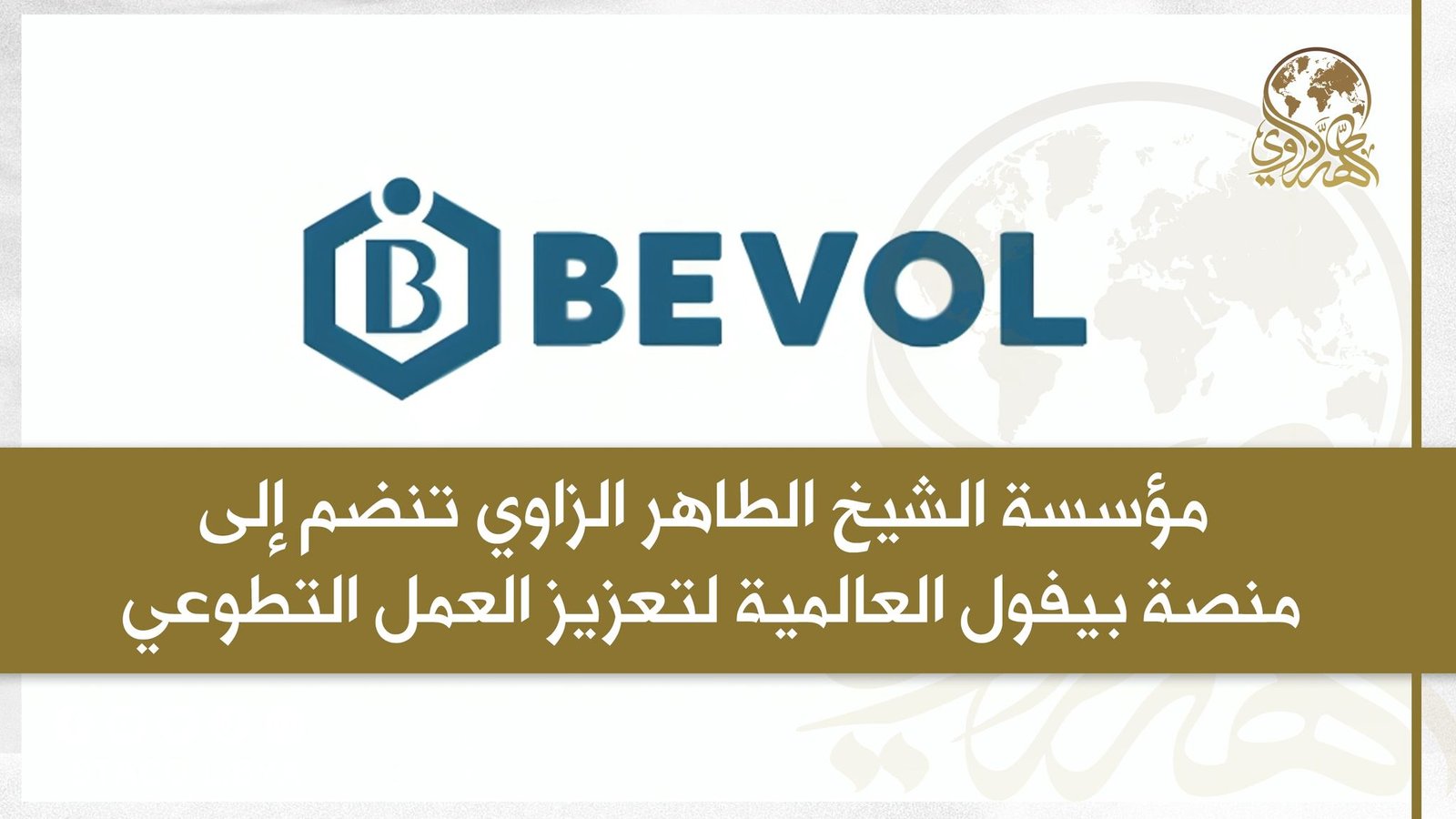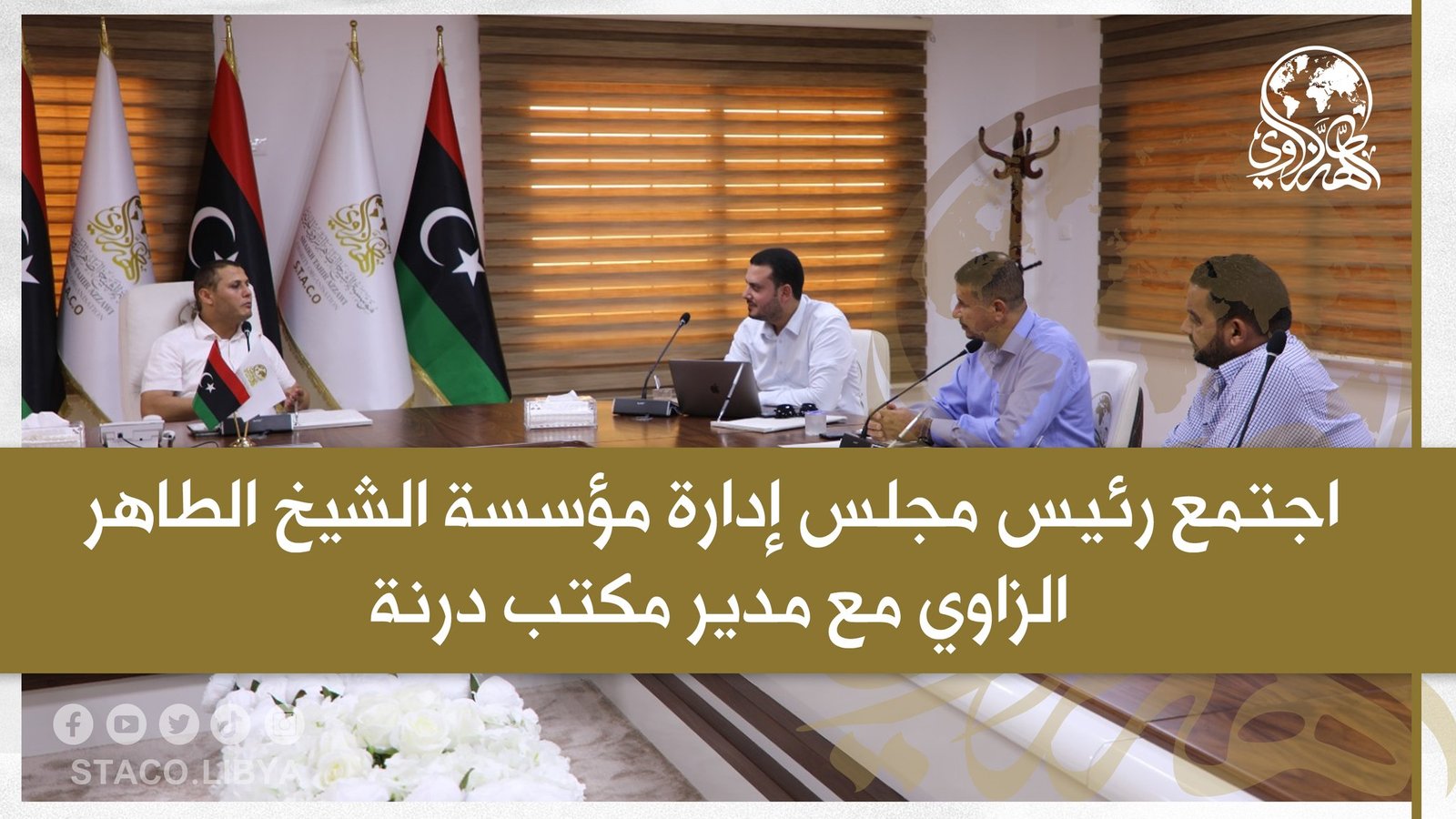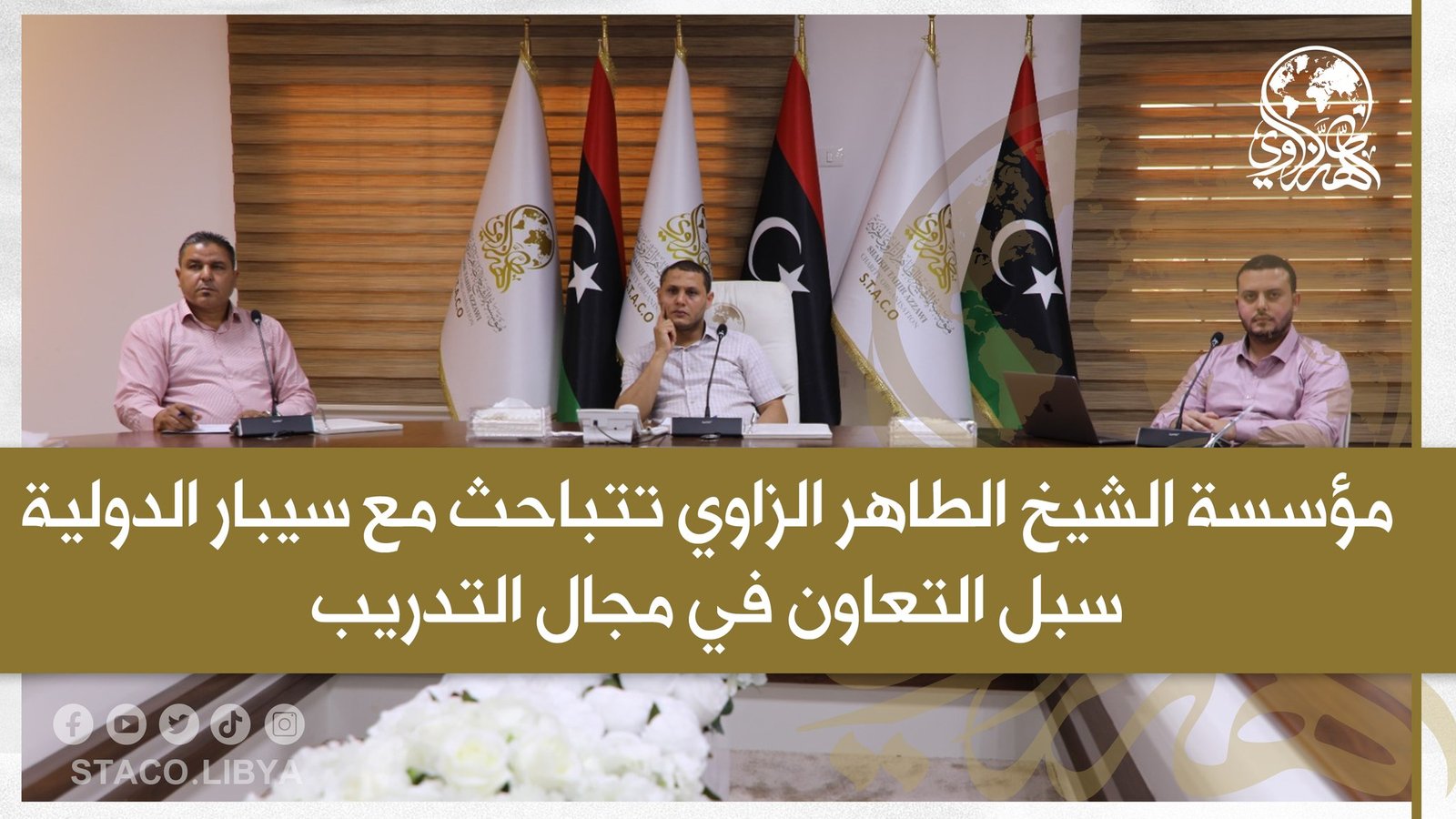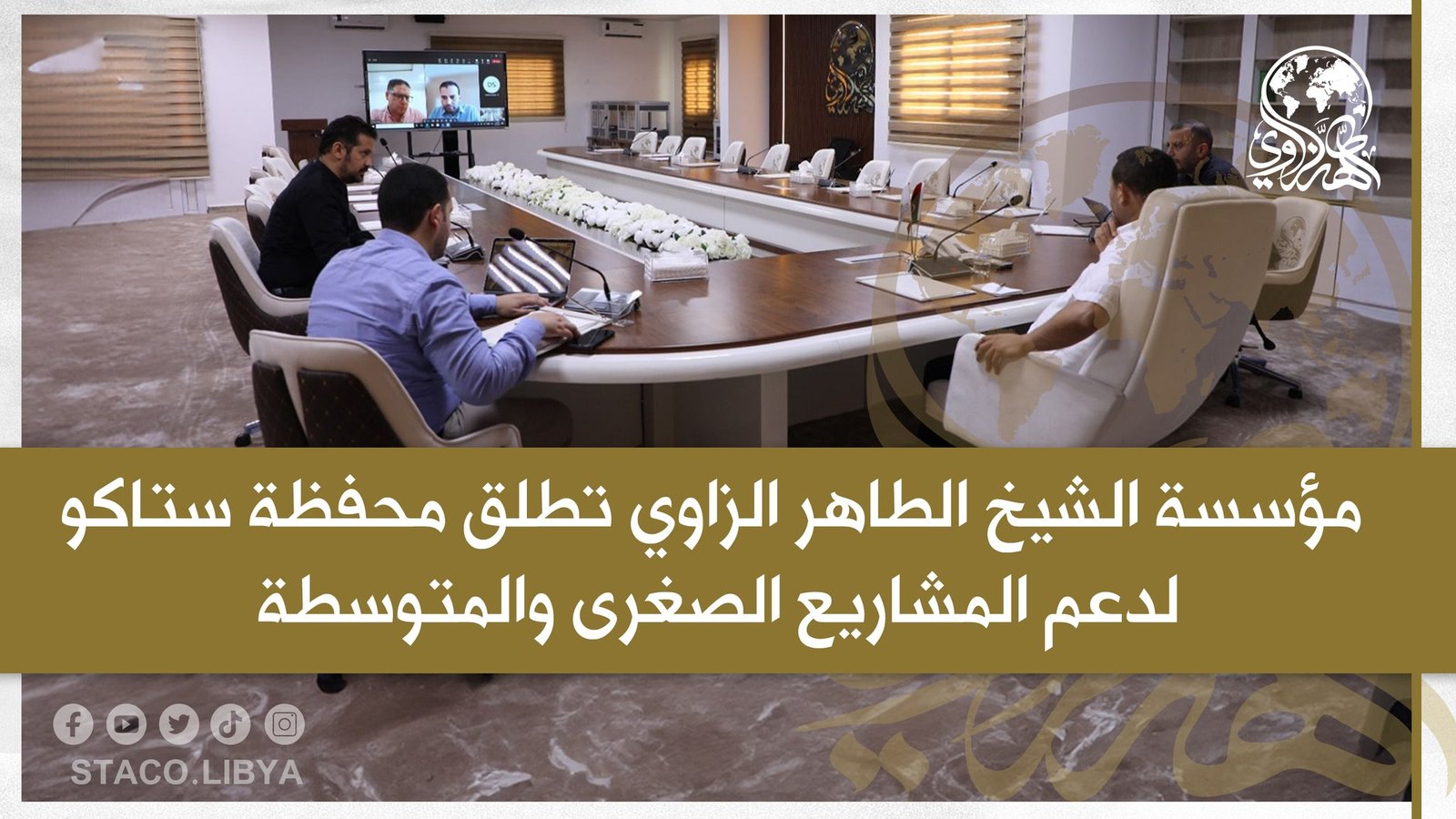Khartoum, Sudan
Under the patronage of the Minister of State at the Ministry of Foreign Affairs of the Republic of Sudan, Ambassador Atta Al-Manan Bakhit, and in partnership with the DDR and Sheikh Taher Al-Zawi Charitable Foundation – STACO, a workshop was held in the Sudanese capital under the title: (Best Applications and Lessons Learned for the Disarmament, Demobilization and Reintegration Program) The merger) in the presence of the Commissioner-General of the Sudan Commission – Lieutenant-General Salah Al-Tayeb Awad, the representative of the Libyan Presidential Council, Mr. Rajab Al-Obeidi, and the Libyan Ambassador to Sudan: Ali Miftah Al-Mahrouq.
A number of experts from the Libyan and Sudanese sides participated in this workshop to study the best applications and lessons learned from the disarmament, demobilization and reintegration program.
The Sheikh Al-Taher Al-Zawi Charitable Foundation was authorized by the Libyan Ministries of Defense and Interior, in support of creating a societal atmosphere within the framework of civil action on the importance of disarming the militias in Libya.
Mr. Salem Ramadan, Chairman of the Board of Directors of the Sheikh Al-Taher Al-Zawi Foundation, revealed a Libyan initiative to integrate militants into state institutions, and pointed out that the visit to Sudan came to see its experience in the process of disarmament, demobilization and reintegration of militants into society.
And that there is a Libyan initiative to integrate armed men into civil institutions, and that the issue of disarmament should be within the official security arrangements, declaring that an agreement will be signed between the Libyan Program for Integration with governmental organizations to implement this project in a civilian framework.
He also expressed his hope that this project would make a big difference in the Libyan reality, and that security and stability would be achieved in Libya, and that it would enjoy a good economic situation. As for the phenomenon of the spread of illegal immigration to Europe through the territory of Libya, he confirmed the existence of a close link between outlaw armed militias, some of which are linked to illegal immigration operations, pointing to a previous report of the United Nations Committee of Experts in particular.
And the continuation of what Libya has been suffering from, from a security deterioration for years, to the existence of interests of some countries in maintaining the situation in Libya. “I see that these countries do not want Libya to have stability and security, because this negatively affects their economies, and they do not want the Libyans to enjoy their great wealth,” he said.
The head of the Libyan human rights foundation also called for reaching an agreement between all countries related to the issue of illegal immigration, whether expelling countries (of migrants), transit countries (including Libya) and countries of arrival (mostly European countries), in order to combat this phenomenon and work to avoid repercussions her negative.
Libya alone cannot bear the responsibility for combating this phenomenon, pointing out that Libya “has been greatly affected by these crimes, especially what was recently circulated by some Western media about the existence of a market for the sale of people.”
The issue of illegal immigration has become, since 2011, one of the most troublesome issues for the Libyan authorities and European governments, especially with the expansion of its area, as smugglers take advantage of the chaos in Libya to transport tens of thousands of migrants to Libya annually.
This workshop came out with all the recommendations that are represented in supporting the military and police institutions to accommodate armed formations, strengthening the community will and civil administration, and supporting civil society institutions to implement and manage disarmament, demobilization and reintegration programs, as well as starting to develop a mechanism to benefit from programs to control small and light weapons and the sanctity of blood and awareness of the dangers of Possession of weapons, focus on reintegration and development programs at the present time with the development of a long-term strategy to deal with disarmament in Libya and the separation between the civilian integration programs and the military integration program and the establishment of a unit to deal with disarmament and demobilization and its separation from the reintegration process, and the development of a short and long-term program strategy It helps in the recovery, stability and development of society, caring for the amputees and the wounded, raising their families’ awareness of privacy and how to deal with them, dialogue with armed groups through their representatives from high and middle leaders to persuade them to integrate them into society, signing a ceasefire in case a peaceful solution is not reached, as well as holding an educational meeting for councils of wise men and tribal leaders to educate them The danger of using small arms and stealth F.
